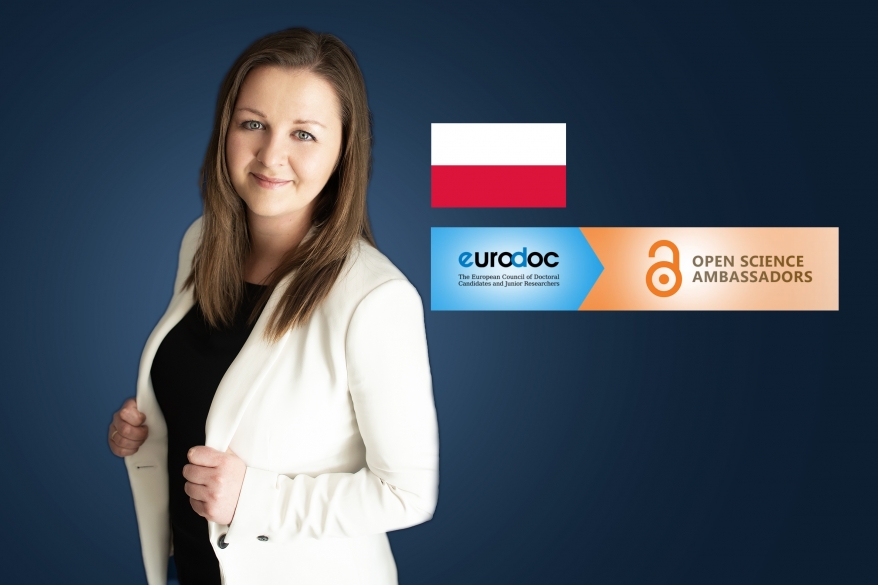We continue introducing members of the Eurodoc Open Science Ambassadors’ cohort 2019/20 who have been promoting openness and transparency in their national, local and institutional communities as we are moving through the International Open Access Week 2020. Meet Dr. Ewelina Pabjańczyk-Wlazło, Open Science Ambassador for Poland and former President of Eurodoc.
Why are you supporting Open Science?
Being a researcher is accompanied by the mission that stands behind the ethos of science. Choosing this career means that you dedicate yourself to work for a global society, which is why no one or anything should restrict access to science and its outputs. I strongly believe that unlimited access to scientific results is the key to technological progress and the socio-economic development of the whole world, which in turn contributes to raising the living standards of all people, lifting various barriers and caring for the future of our globe. In today's complicated world, Open Science is not only a need, it is a must, which was strongly shown by the SARS-CoV-2 pandemic. And the implementation of OS is the responsibility of all parties involved, the decision makers (state authorities and higher education institutions, librarians, publishers, entrepreneurs) and of course, researchers, irrespective of career stage.
What are the main challenges for Open Science implementation in your country?
The biggest challenges in Poland are, first of all, the lack of awareness and lack of knowledge about Open Science among researchers. Despite the fact that there are many initiatives, events and courses, either available for free on the internet or as services and resources provided by university libraries, scientists in Poland do not always know what Open Science and related concepts are about. Another problem concerns the lack of systemic support in this regard at the university level or national level policies e.g. during research assessment. If these policies will not include incentives for researchers to practice OS, it will be very difficult to develop this habit and permanently introduce it into the researchers' daily work. In addition, practicing OS requires specific skills, as well as some kind of administrative work, which, given the current heavy workload of researchers, may become another unwanted duty if universities do not provide support in this area. The discussion on this topic in Poland is still difficult - Open Science has many opponents and, sadly, it often applies to scientists themselves who do not distinguish OS practices from practices of predatory publishing houses.
How are you addressing these challenges?
First of all, I try to spread the idea of Open Science among my closest colleagues, researchers, and above all, young scientists, especially doctoral candidates who are starting their adventure with science. Secondly, I advocate for OS during different events and constantly try to improve my knowledge and skills in this area in order to be prepared to share good practices. I am also an active member of the researcher community and, through my activity in different groups and bodies, am working to raise awareness of OS.

